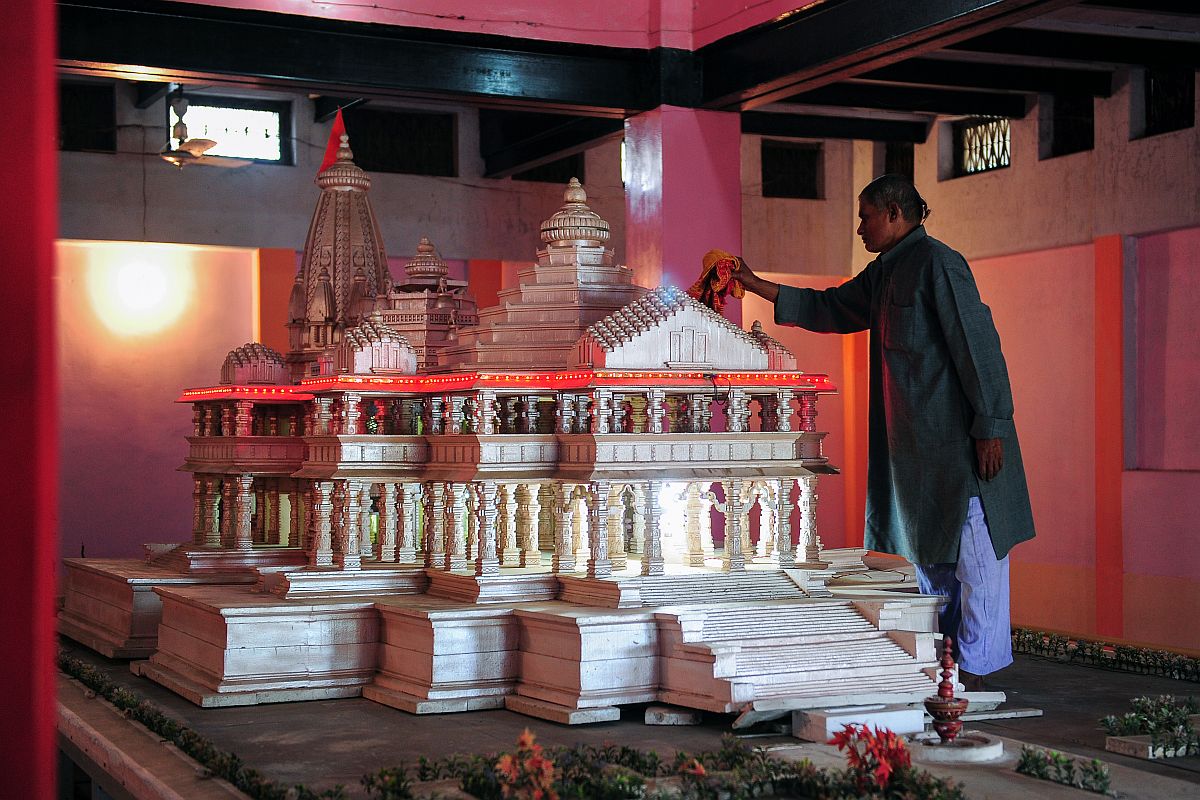The 134-year-old politically sensitive Ram Janmbhoomi-Babri Masjid land dispute in Ayodhya has been finally put to rest with the Supreme Court pronouncing a rather balanced verdict in the title suit on Saturday.
In a landmark judgement, a five-judge bench headed by Chief Justice Ranjan Gogoi ruled that the disputed 2.77-acre land will be taken over by a Government trust for the construction of the temple, while a suitable alternative plot of land measuring 5 acres at a prominent site in Ayodhya will be given to the Sunni Wakf Board.
The Supreme Court has asked the Centre to set up the board of trustees within three months after which the disputed land will be handed over to the trust.
Announcing 5-acre land in Ayodhya for the Sunni Wakf Board, the Supreme Court observed, “Muslims should not be deprived of a structure, they will get an alternative site for masjid”.
Pronouncing a “unanimous” judgement, the Supreme Court said, “the law must stand apart over politics, religion and beliefs”.
Court as a secular institution should uphold all beliefs and religions, the top court said.
The judgement weighed heavily on the Archaeological Survey of India report. Archaeological Survey of India’s credentials are beyond doubt and its findings cannot be neglected, the Chief Justice said.
The Supreme Court observed that there is adequate material in the ASI report to conclude that the Babri Masjid was not constructed on vacant land and that there was a structure underlying the disputed structure.
The apex court further said that there is no evidence that Muslims abandoned the mosque. “Hindus always believed that the birthplace of Lord Ram was in the inner courtyard of the mosque. It is clearly established that Muslims offered prayers inside the inner courtyard and Hindus offered prayers in the outer courtyard,” the court said.
The five-judge bench delivering the verdict said the possession of the disputed 2.77-acre land rights will be handed over to the deity Ram Lalla, who is one of the three litigants in the case. The possession, however, will remain with a central government receiver.
The court said the title of the land can be decided only on legal advice.
The top court ruled that the Allahabad High Court verdict of 2010, giving land to the Sunni Waqf Board and Nirmohi Akhara, was wrong.
It rejected the claim of Nirmohi Akhara of being a ‘shebait’ (a devotee who serves the deity).
The Supreme Court, however, said that in the board of trustees, appropriate representation should be accorded to Nirmohi Akhara, even though its suit was dismissed.
Lawyers representing the Hindu groups have hailed the verdict as a “historic” one.
“It is a historic judgement. With this judgement, the Supreme Court has given the message of unity in diversity,” Varun Kumar Sinha, Lawyer of Hindu Mahasabha said.
However, Sunni Waqf Board lawyer Zafaryab Jilani said that they respect the court judgement but are not satisfied.
“We respect the judgement but we are not satisfied, we will decide further course of action,” he said.
He further asked the Muslim groups to not hold any kind of demonstration anywhere.
The All India Muslim Personal Law Board said it will file a review petition if its committee agrees on it. “It is our right and it is in Supreme Court’s rules as well,” Jilani said.
The Nirmohi Akhara said it is grateful that the apex court has recognised its fight for the last 150 years and has given the Nirmohi Akhara adequate representation in the trust to be set up by the Central Government to build and manage the Shri Ram Janmasthan Temple.
The 5-judge bench headed by Chief Justice Ranjan Gogoi and comprising Chief Justice-designate Justice SA Bobde, Justice Ashok Bhushan, Justice DY Chandrachud and Justice SA Nazeer, had reserved the judgement on October 16, after a 40-day marathon hearing on the matter, which began on August 6.
This is the second-longest case to be heard by the Supreme Court.
The court began the daily hearing after the court-appointed mediation panel headed by former Supreme Court Justice FMI Kalifulla and comprising spiritual guru Sri Sri Ravi Shankar along with senior advocate Sriram Panchu failed to develop a consensus among the parties to arrive at an amicable solution.
The Allahabad High Court in 2010 through a judgement had equally partitioned the dispute 2.77 acre land between – Ram Lalla Virajman, Nirmohi Akhara and Sunni Waqf Board. A total of 14 appeals were filed in the apex court in four civil suits.












